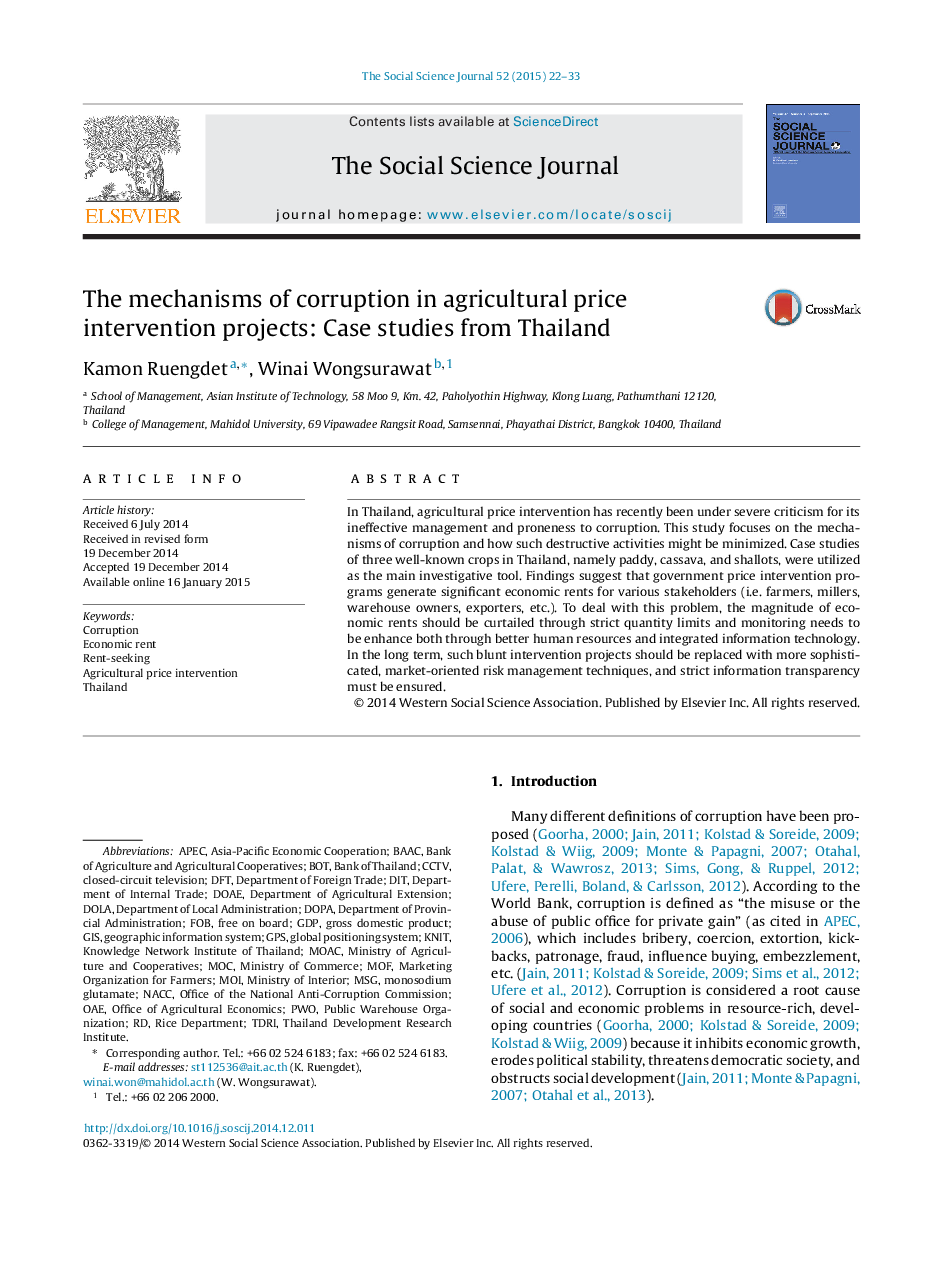| Article ID | Journal | Published Year | Pages | File Type |
|---|---|---|---|---|
| 140086 | The Social Science Journal | 2015 | 12 Pages |
•Agricultural price intervention projects in Thailand have recently been under severe criticism for their ineffective management and proneness to corruption.•This paper provides an updated investigation of economic rents and rent-seeking behavior among stakeholders in agricultural price intervention projects.•The findings indicate that the magnitude of economic rents should be curtailed through strict quantity limits.•Monitoring needs to be enhanced both through better human resources and integrated information technology.•The Thai government should pay more attention to economic rents and design more appropriate mechanisms to curtail rent-seeking.
In Thailand, agricultural price intervention has recently been under severe criticism for its ineffective management and proneness to corruption. This study focuses on the mechanisms of corruption and how such destructive activities might be minimized. Case studies of three well-known crops in Thailand, namely paddy, cassava, and shallots, were utilized as the main investigative tool. Findings suggest that government price intervention programs generate significant economic rents for various stakeholders (i.e. farmers, millers, warehouse owners, exporters, etc.). To deal with this problem, the magnitude of economic rents should be curtailed through strict quantity limits and monitoring needs to be enhance both through better human resources and integrated information technology. In the long term, such blunt intervention projects should be replaced with more sophisticated, market-oriented risk management techniques, and strict information transparency must be ensured.
